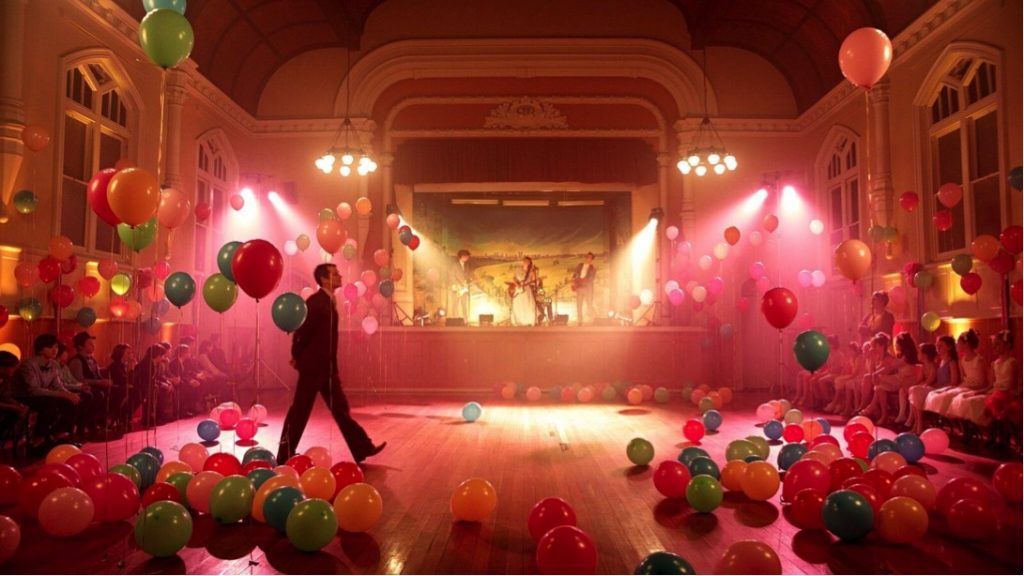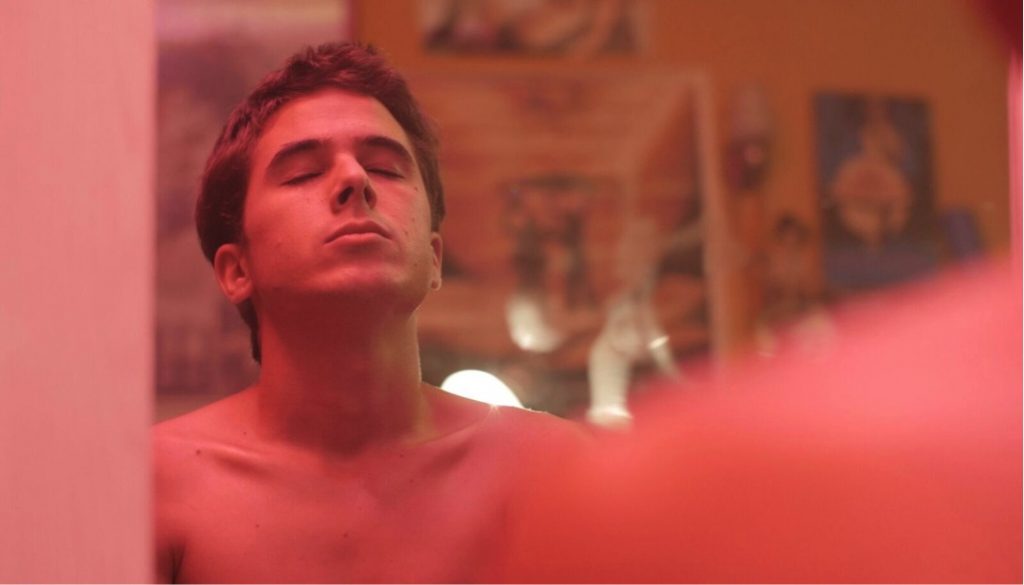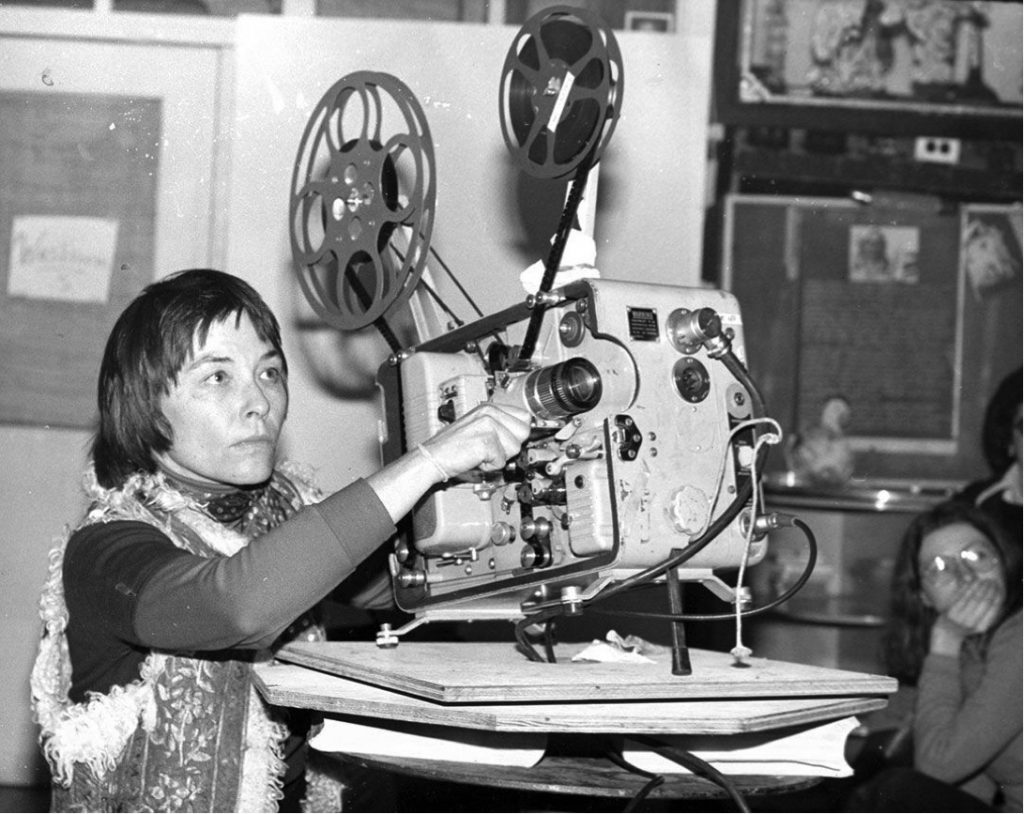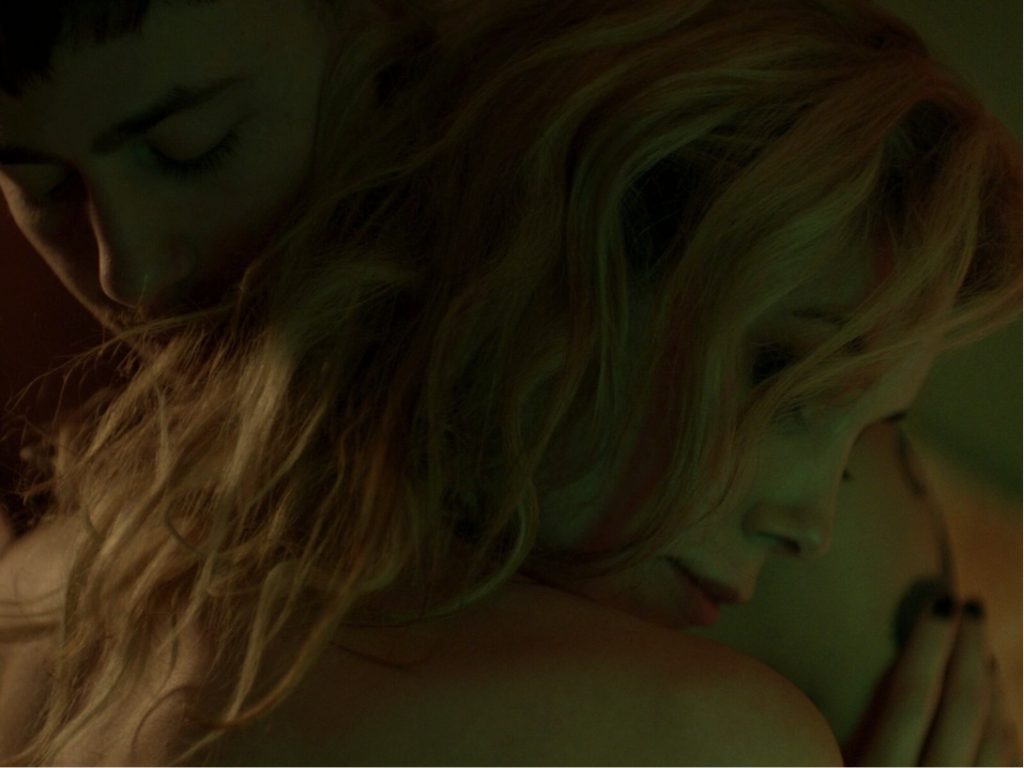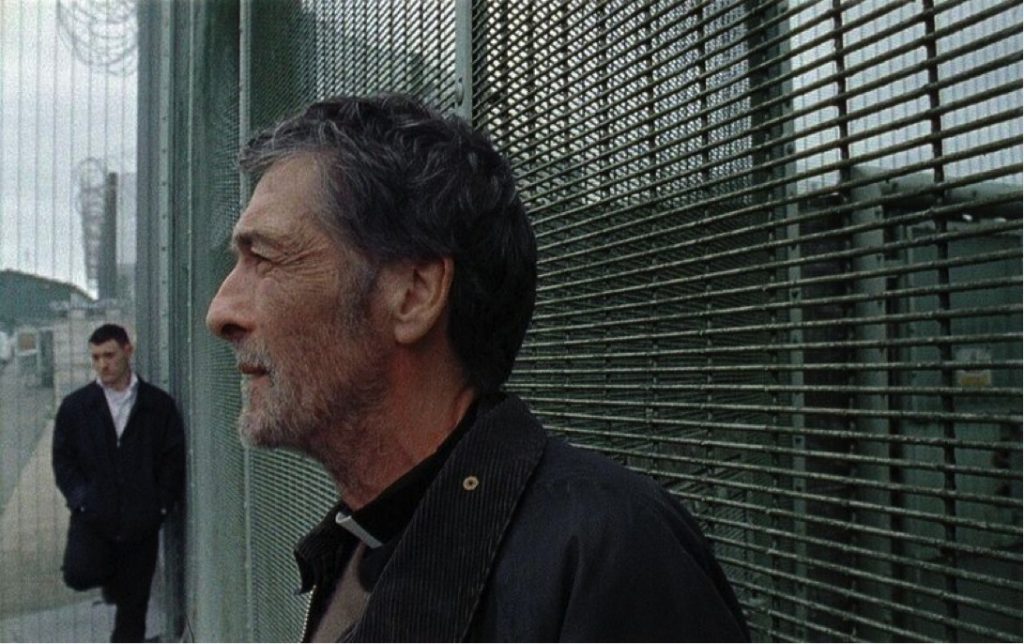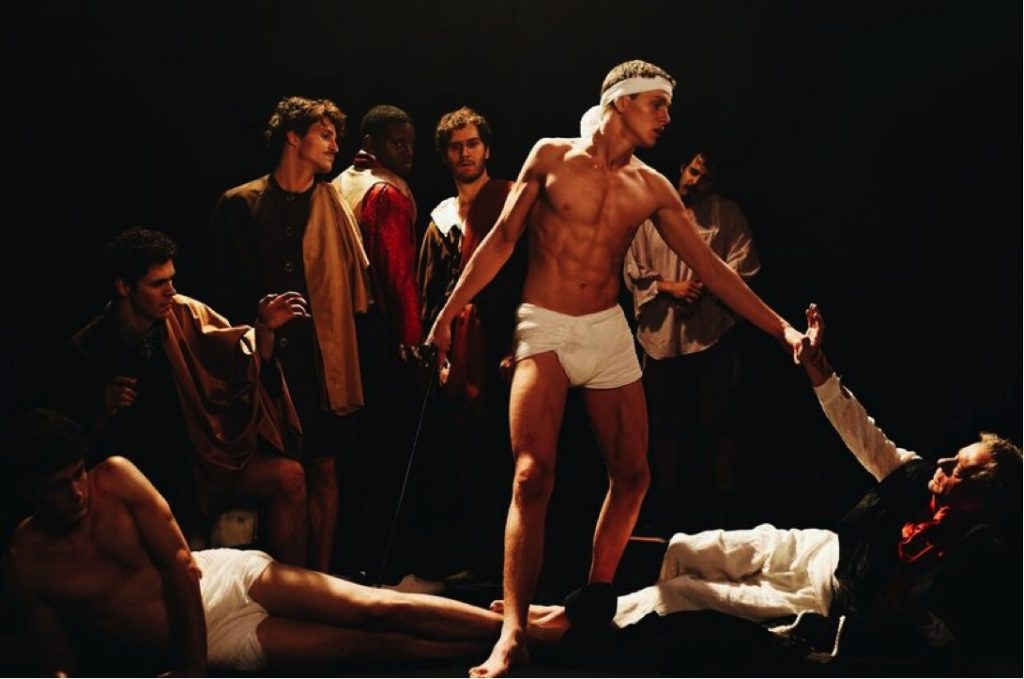Having run from Tuesday 9th-Sunday 14th October, the Iris Prize LGBT+ Film Festival has come and gone once again from Cardiff, leaving behind it a trail of great films, complimentary lunches, insights into the global smorgasbord of filmmakers featured, and contacts from mingling and networking.
I attended the festival for two days. Long story short, I loved it. See below for a number of micro-reviews of the various shorts and features I saw on Thursday 11th, many of which were nominated for and won the various prizes at the festival, and stay tuned for an article later this week where I’ll be reviewing the films I saw on Friday 12th, as well as discussing the wider festival in more detail.
Iris Prize Shorts 4 – FINDING PRIDE
Mrs McCutcheon (2017) Dir: John Sheedy
The day’s first batch of short films was a bit of a mixed bag, with the pieces often playing it safe in their thematic and technical construction, but offering simple pleasures nonetheless. First up was Tasty, an Australian piece centred around the police raid of the alternative nightclub Tasty, which had become a key spot for Melbourne’s gay and transgender communities in the 90s. The film’s slightly awkward ADR, editing, and occasionally shoddy camerawork seemed to lend it the feel and charm of a micro-budget indie film from the 90s, although it did deprive the film of some of its intended emotional punch.
Then came Dario, a German/Columbian co-production about a young man who aspires to be a carnival dancer. While the film was lent a great sense of beat and rhythm in its editing and sound design, it eventually becomes enamoured by its own filmmaking style, and winds up being rather distracting. A Q&A with one of the film’s co-directors revealed how while his own influences were silent film, his co-director wanted to approach the story with the realism and dialogue style of a Ken Loach film. You can tell, as the film remains slightly unsatisfying in both realms.
The final two films in the programme, Superheroes and Mrs McCutcheon, both operated under a similar mould of offering sweet, child-focussed tales of bullying, identity and self-acceptance. While Superheroes suffered from a lack of visual personality with its overly clean Ikea-catalogue aesthetic, Mrs McCutcheon created a bright visual stamp by its end, and ultimately the gentle innocence, humour and warmth present here carried both films. They each clearly resonated with their audiences, with Mrs McCutcheon going on to win the Iris Prize Youth Award, as voted for by attendees of the Iris Education Day and Pride Cymru Youth Conference.
Cola De Mono (2018) Dir: Alberto Fuguet
One of the films I was particularly looking forward to, Cola De Mono wound up being a film of bits and pieces. The film’s pacing often stops it dead in its tracks, and the lack of a consistently engaging tone prevents it from offering an entirely satisfying whole. Even so, when the piece focusses on its depiction of sexual obsession, a demented family dynamic, and the tactility of food and flesh, it proves haunting. Certain techniques in Fuguet’s direction remain utterly engaging, most noticeably the blocks of text which appear onscreen at key moments, offering among other things definitions of gay jargon, the recipe for the titular drink Cola De Mono, and an analysis of the fetish quality of the jockstrap.
Dykes, Camera, Action! (2018) Dir: Caroline Berler
An engaging, informative talking head documentary about the history of lesbians in filmmaking, which ranges from searching for queer identification in classic cinema (“You learn how to pull the crumbs from these films”), through to pioneering lesbian filmmakers such as Chantal Akerman and Barbara Hammer, the advent of New Queer Cinema in the 90s, and the status of the lesbian community in film and TV today. At around an hour long, I would love to see the piece continue life as a television series to explore the history, debates and discourses presented here in further detail. For the time being at least, the piece has offered me a great list of films and directors to go research and discover.
Iris Prize Shorts 6 – INTIMACY
Pre-Drink (2017) Dir: Marc-Antoine Lemire
This programme offered two of my favourite films from the entire festival, Pre-Drink and Our Skin, with Pre-Drink winding up as one of the three finalists for the International Iris Prize award. Pre-Drink is a single location piece about Alexe, a trans woman a month away from her final operation, enjoying some pre-drinks with Carl, her gay male friend. The film offers a sharp and restrained story, crafted expertly through its rich use of selected colour, the intimacy created through its academy ratio, and the deeply touching and erotic central performances. The next film, Sleepover, contrasted Pre-Drink with its simple, sweet, innocent story of unrequited love.
The spine of the next film, Our Skin, is a real phone call recorded on a phone sex line between a trans woman and a 21-year-old member of the US military. As the phone call plays, the two flirt and eventually discuss the woman’s anxieties in being trans, and the man’s PTSD from combat. To compliment the sound, a shifting, writhing mood board is created onscreen of soft-focus glimpses of the woman, dreamlike depictions of oil-coated bodies, and skeletal figures surrounded by darkness. Utterly hypnotic.
Capping it off was Girl Talk, an American film centred around the relationship troubles of a young lesbian. While the film initially came across as narcissistically obsessed with its own glossy music video style, the writing and performance of the central character added a tangible depth to the film, subverting the piece’s visual flair through her quiet, undisclosed misery. I was lucky to have a quick chat with Chelsea Moore, the producer of the film, and listen to her plans for continuing to tell stories set in this mould. It’ll be interesting to see what happens.
Best British Shorts 1 – FAMILY AND FAITH
Wren Boys (2017) Dir: Harry Lighton
The Family and Faith collection proved to be one of the most varied at the festival in terms of the styles of filmmaking presented. Firstly, Poof. A well shot piece with an admirably realistic depiction of antagonism and homophobia, but one that overall felt like I’d seen it before. Following this, Lehenga, a short, simple piece built around one reveal which suits the format of a viral video better than a short film, albeit a successful one in its aim. Courted followed suit, its story of a 72-year-old Jehovah’s Witness hiding his homosexuality proving incredibly nuanced in its construction and central performance. A short comedic piece, Clothes & Blow, was colourful, light and breezy, and featured a great dynamic among its cast.
Fighting both Pre-Drink and Our Skin for the choice of my favourite film of the day, however, was Wren Boys. At only 11 minutes long and shot on film with 1970s-esque grain, this heart-breaking, effortlessly textured piece resulted in me demanding for more time with the characters. Wren Boys went on to be a finalist in the International Iris Prize category alongside Pre-Drink and the eventual winner Three Centimetres, as well as being a finalist in the Best British Short category, and winning the inaugural attendee-voted Audience Award for Best British Short.
Postcards from London (2018) Dir: Steve McLean
The final film I saw that day, Postcards from London presents the story of a young man joining a team of elite male escorts who offer intellectual stimulation alongside their more traditional services. Shot in an abandoned theatre, the stage-like sets offer fantastic imagery. Soho here consists of a never-ending black void of alleyways and glowing neon, it’s all very “Neon signs, hidden messages. Questions, answers, fetishes?”. While tightly made, its charms wear thin as the film becomes further seduced by its own aura and ironic faux-intellectual discussions.


